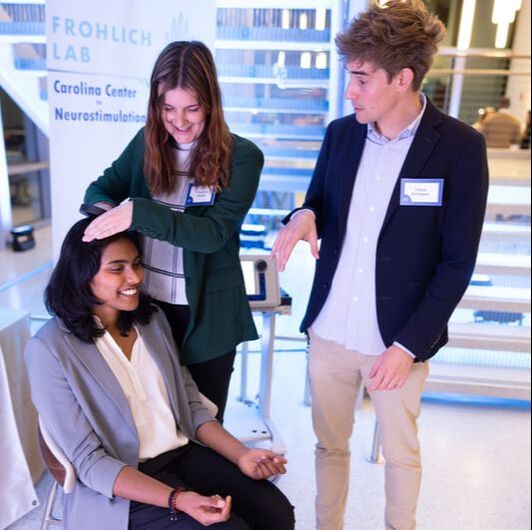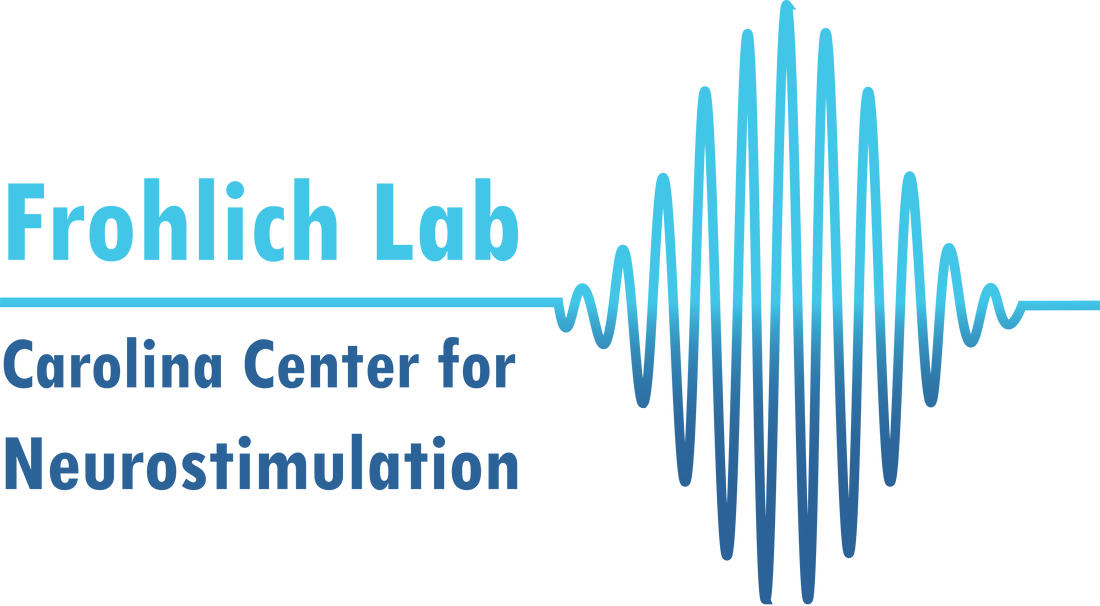Participate in Our Open Research Studies
|
If you're interested in learning more about our research studies focusing on the use of noninvasive brain stimulation for depression symptoms, check out our currently enrolling studies. You can explore the details of participation and find out if you may be eligible by clicking the button below!
|
Our Mission |
Welcome BBSP students! |
|
We seek to understand the neural basis of behavior and develop novel treatments for psychiatric and neurological disorders through the interdisciplinary study of network dynamics. We walk the translational talk by integrating preclinical and clinical research. We use electrophysiology, imaging, brain stimulation, cognitive assays, and gold-standard clinical trials methodology. We use advanced data analysis, computational modeling, and machine learning in close conjunction with our experimental work. We strive to make our laboratory a productive, collaborative, and happy workplace. Our core values are outstanding mentorship, highest scientific integrity, and world-class innovation. We welcome, celebrate, and foster diversity.
Together we will change the world! |
Join us to study brain rhythms and develop new treatments for mental illness. We recognize that we are living in a difficult time and, as a lab, we strive to not only excel as scientists but also act as a change agent to help address the systemic issues in our society. Contact us to learn more.
|
Career Opportunities
We are funded by...
Frohlich Lab Tweets:
What people are saying...
|
"I really appreciated that there were lots of opportunities for hands on work, which allowed me to gain skills in several areas such as histology, imaging, and animal training."
"Open and flexible work environment" "I was given a lot of responsibility as an undergraduate and Flavio and the grad students helped me develop a lot of skills that have helped me in future research and have made me a good candidate for grad school." "Research projects, research dynamics and atmosphere, good mentoring relationship etc." "Exciting projects, well-established platform for documentation, regular feedback from Flavio, freedom in implementing my own algorithms and code changes." "The opportunity to grow and be around such amazing research/potential." |
"Flavio's dedication to his work and his team is unparalleled. He has very high expectations but does reward and acknowledge accordingly when one meets them. I still find myself missing some of my colleagues from the Frohlich Lab for their friendship, intelligence, and sense of ownership. I know that I owe a lot of my success to Flavio's mentorship and his willingness to challenge me to push myself to my limits which is very much not something that had ever been asked of me before I joined the Frohlich Lab."
"The lab was very welcoming and instructive. "Collegial environment, wonderful people, patience with my relative lack of bench work experience." "The personal attention from the PI. While standards were high, mentorship was provided to help you reach your goals." "goal-oriented, productive, exciting" |
Proudly powered by Weebly










